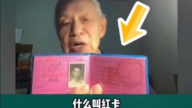【新唐人2013年02月28日讯】两会召开之前,中国民间各界一百多位公民再次发起公民联署,向即将召开的第12届全国人大倡议,尽快批准加入“公民权利和政治权利国际公约”。15年来一直备受关注的这一问题,对中国社会存在怎样的影响呢?下面请看分析报导。
目前这份“公民建言”联署信在网络流传,签署人数已经超过100人。其中包括知名人士,例如贺卫方、茅于轼、巩胜利等学者;还有浦志强、周泽等律师;以及戴晴、冉云飞等作家;联署人也有不知名的网友和企业家,医生等,分布在中国大陆各城市,有些来自香港。
“公民权利和政治权利国际公约”和“经济、社会及文化权利国际公约”,以及“世界人权宣言”一起组成了“国际人权宪章”,体现了经过两次世界大战后的反思,那就是:人类推崇的普世价值。截至2010年11月1号,在联合国193个会员国中,已有167个国家正式加入了“公民权利和政治权利国际公约”。
1998年,中国作为第140个国家,在“公民权利和政治权利国际公约”上签了字。此后中共当局多次表示,将尽快履行批准公约的法律程序。至今15年过去了,“公民权利和政治权利国际公约”还是没有在全国人大批准通过,因此不能正式生效。
大陆经济学家芧于轼:“这是十几年的事了,现在赶紧给它通过。现在虽然政府是签了字,但是立法机关没有签字,所以有些事还不能进入法律程序。”
北京《国情内参》首席研究员巩胜利:“全世界都知道,只有像中国为数不多的几个国家没有通过。那麽对保障中国公民的这种权利,都是说了一句空话。这是最起码的人类的一种环境吧。”
在此之前,中国民间多次发出呼声,要求人大尽快批准加入“公民权利和政治权利国际公约”,但都石沉大海。不过联署人对这次呼吁,能否得到人大的响应,仍然抱有信心。
芧于轼:“我觉得应该有可能。因为这个事情已经多少年了,而且过去开人大的时候提过这个事情的,我不知道为什么没有通过。这次再提一次,新的领导也可能有新的看法。”
北京《国情内参》刊物首席研究员巩胜利虽然也认为,这一届人大有可能通过加入“公民权利和政治权利国际公约”,但是他也表示了担心。
巩胜利:“不通过也有可能,因为现在一党垄断的权力,那麽它要保证它‘占山为王’的这种方式,那它当然可以不通过。但是最终历史的潮流谁都没有办法阻挡。”
十八大后,习近平采取了一系列动作,来树立不同于前任领导人的形象。也参与联署“公民建言”的中国大陆学者吴强对海外媒体表示,这次联署正是对正式在两会期间接管权力的新领导层的考验,看看新一届中共政治局常委在上任之后这段时间里,塑造出来的所谓“亲民形象”是否真实。
目前,中国《宪法》与“公民权利和政治权利国际公约”存在着一些差异,尤其在“死刑”和“人身自由,强迫劳动”等方面。
而即使在和公约没有差异的方面,中国还存在“实施”和“监督”的问题。例如,中国《宪法》也承认公民“言论自由”和“集会自由”的权力,但实际上,因言获罪的例子比比皆是。中国《宪法》和《诉讼法》也强调司法独立,但实际上法院独立审判还难以做到。
如果这届“人大”通过加入“公民权利和政治权利国际公约”,则表示中国要接受这项公约的实施机制,必须理清中国人权体制与公约的差异,并且采取立法和司法措施予以弥补。
采访/李韵 编辑/尚燕 后制/李智远
Chinese Citizens Urge to Ratify the ICCPR joined 15 years ago
Before the Chinese Communist Party´s (CCP) two annual
meetings, more than one hundred citizens from all walks of ´
life launched a citizens’ signatories petition again.
They requested the 12th National People´s Congress (NPC)
to join the International Covenant on Civil and Political Rights as soon as possible.
This issue has been a concern for the Chinese for 15 years.
What impact will it have on the Chinese society?
Let´s take a look.
The signatory event was circulated online,
over 100 people have signed the letter.
Some are well-known people, scholars including
He Weifang, Mao Yushi and Gong Shengli;
Lawyers included Pu Zhiqiang and Zhou Ze;
Writers included Dai Qing and Yan Yunfei;
Netizens, businessmen and doctors from different cities and
people in Hong Kong also signed their names.
The International Bill of Human Rights consists of the
“International Covenant on Civil and Political Rights”
(ICCPR), the “International Covenant on Economic,
Social and Cultural Rights”, and the “Universal Declaration of Human Rights”.
Its manifest states that after two world wars,
human universal values will be respected.
As of 1st November, 2010, of the 193 members of the
United Nations, 167 countries officially joined the ICCPR.
China signed the ICCPR in 1998 became 140th signatories.
Since then, the Chinese regime repeatedly said to ratify the
ICCPR into law, proceeding ahead as soon as possible.
15 years have passed, the ICCPR hasn´t been approved by
the NPC, thus it still hasn´t taken effect in China.
Mao Yushi, an economist in Mainland China:
“This is more than a decade, we should push it forward now.
Even the government has approved it, but the legislature
hasn´t approved it, thus, some things still can´t proceed in law.”
Gong Shengli, chief researcher of Guoqing Neican magazine:
“The world knows that only a few countries like China haven´t approved it yet.
Thus, they are empty words to ensure the Chinese people´s civil
rights, which is a fundamental environment for human kind.”
Prior to this, people repeatedly urged the NPC to approve the
ICCPR and legislate it into law.
Mao Yushi: “I think it should be possible.
As it has been delayed for so many years, in addition,
people have raised this issue to the NPC in the past.
I am not sure why it hasn´t been approved.
By mentioning it again, the new leadership may
take a different view of it.”
Gong Shengli also agreed, there is a chance to
pass it this year, however, he is still worried.
Gong Shengli: “It is possible that it won´t be approved,
because the one-Party dictatorship wants to secure its power, certainly they won´t approve it.
However, there is no way to stop history moving forwards.”
After the 18th CCP Congress, Xi Jinping took a series of
actions to establish a different image from his predecessors.
Wu Qiang, a scholar in Mainland China, who participated in
the petition said to overseas media that
the petition is testing the new leadership, whether their
“approachable” image that was established after the power transition is real.
At present, there are gaps between China´s
constitution and the ICCPR.
Especially with the “death penalty” and
“personal freedom and forced labor” aspects.
Although some areas have no differences with the ICCPR,
problems still exist in its “implementation” and “supervision”.
For example: China´s constitution also recognizes
“freedom of speech” and “freedom of assembly”.
In fact, one is punished for expression, is common place.
China´s Constitution and Litigation also emphasize the
independence of the judiciary.
However, the courts judicial independence is hard to achieve.
If this year the NPC approves the ICCPR,
it means China will implement the ICCPR.
The gap between China´s human rights system and
the ICCPR must be cleared.
In addition, it needs to adopt legislative and judicial
measures to replace the gap.





























